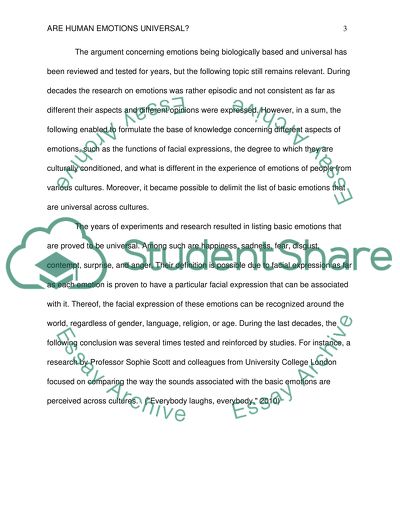Cite this document
(“Are Emotions Universal Essay Example | Topics and Well Written Essays - 1000 words”, n.d.)
Retrieved from https://studentshare.org/psychology/1659732-are-emotions-universal
Retrieved from https://studentshare.org/psychology/1659732-are-emotions-universal
(Are Emotions Universal Essay Example | Topics and Well Written Essays - 1000 Words)
https://studentshare.org/psychology/1659732-are-emotions-universal.
https://studentshare.org/psychology/1659732-are-emotions-universal.
“Are Emotions Universal Essay Example | Topics and Well Written Essays - 1000 Words”, n.d. https://studentshare.org/psychology/1659732-are-emotions-universal.


